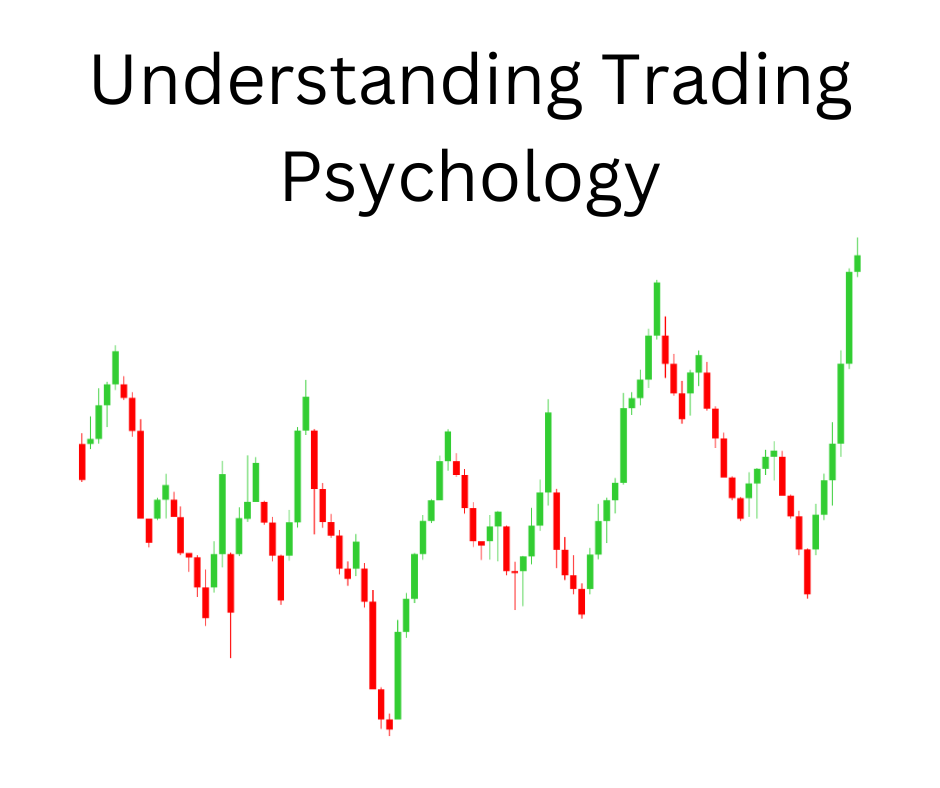Forex trading can be an exciting and rewarding journey, but it’s not just about the numbers and charts. Emotions play a crucial role in our decision-making process. In this article, we’ll dive deep into the world of trading psychology, uncovering the psychological challenges faced by traders and the keys to success.
What is Trading Psychology?
Trading psychology refers to the emotions and mental state that influence a trader’s decisions in the financial markets. In forex trading, the term “trading psychology” encompasses the beliefs, feelings, and habits that impact how we approach trades, manage risks, and adapt to market fluctuations.
I remember when I first started trading, I was so focused on analyzing the markets and setting up the perfect trades that I overlooked the emotional aspect of it all. However, I quickly learned that emotions are a critical factor in trading success. If left unchecked, they can lead to impulsive decisions, costly mistakes, and lost opportunities.

Why is Trading Psychology Important?
The importance of trading psychology cannot be overstated. I’ve seen countless traders with strong technical skills and a solid understanding of the markets fall short due to their inability to manage emotions effectively.
A strong grasp of trading psychology can help you remain calm under pressure, make better decisions, and ultimately improve your overall performance in the market. It allows you to identify and overcome psychological barriers that can hinder your success, helping you to develop a more disciplined and consistent approach to trading.
The Psychological Challenges of Forex Trading
Fear and Greed
Fear and greed are two of the most powerful emotions experienced by forex traders. Fear can lead to panic selling, while greed can drive you to take unnecessary risks or hold onto losing positions for too long. Recognizing and managing these emotions is essential to avoid impulsive decisions and maintain a disciplined approach to trading.
Impatience and Frustration
Another common challenge in trading psychology is impatience and frustration. When the market doesn’t move in our favor or we experience a series of losses, it’s natural to feel impatient or frustrated. However, letting these emotions dictate our actions can lead to hasty decisions and poor risk management. Remaining patient and sticking to your trading plan is crucial for long-term success.
Overconfidence and Self-Doubt
Overconfidence and self-doubt are two sides of the same coin, and both can be detrimental to your trading performance. Overconfidence can lead to reckless trading, while self-doubt may cause you to second-guess your decisions and hesitate when opportunities arise. Balancing confidence and humility is key to maintaining a healthy mindset in forex trading.
Revenge Trading and Loss Aversion
Revenge trading occurs when a trader, driven by anger or frustration from a losing trade, attempts to recover their losses by making aggressive and high-risk trades. Loss aversion, on the other hand, is the tendency to hold onto losing trades in the hope that they will eventually turn profitable. Both behaviors can lead to significant losses and should be avoided at all costs.
Key Psychological Principles for Successful Forex Trading
Mindfulness and Emotional Intelligence
Developing mindfulness and emotional intelligence can help you stay present, focused, and self-aware during trading. These skills enable you to recognize your emotions and manage them effectively, reducing the likelihood of impulsive decisions and enhancing your overall performance.
Discipline and Patience
Discipline and patience are essential for successful forex trading. By staying disciplined and following your trading plan, you can avoid making impulsive decisions based on emotions. Patience, on the other hand, allows you to wait for the right opportunities and manage your expectations realistically.
Positive Self-Talk and Visualization
Positive self-talk and visualization are powerful tools for building confidence and maintaining a positive mindset in forex trading. By regularly practicing positive affirmations and visualizing yourself as a successful trader, you can reinforce your belief in your abilities and develop a more resilient attitude towards setbacks.
Risk Management and Position Sizing
Effective risk management and position sizing are crucial for long-term trading success. By carefully managing your exposure to risk and only taking positions that align with your risk tolerance, you can minimize the emotional impact of losses and maintain a more stable mindset.
Overcoming Psychological Barriers in Forex Trading
Developing a Trading Plan
A well-structured trading plan serves as a roadmap for your trading journey, outlining your goals, strategies, and risk management guidelines. By sticking to your plan, you can minimize emotional decision-making and maintain a consistent approach to trading.
Setting Realistic Goals
Setting realistic goals is crucial for managing your expectations and maintaining a positive mindset. By focusing on achievable milestones, you can avoid disappointment and stay motivated in your pursuit of trading success.
Identifying and Managing Triggers
Recognizing and managing emotional triggers is essential for maintaining emotional stability in forex trading. By identifying situations that provoke strong emotional responses, you can develop strategies to cope with them more effectively and avoid impulsive decisions.
Learning from Mistakes and Losses
Mistakes and losses are inevitable in forex trading. Instead of dwelling on them, use them as learning opportunities to improve your skills and refine your strategies. This will help you develop a growth mindset and foster resilience in the face of setbacks.
Understanding the Role of Cognitive Biases in Forex Trading
Confirmation Bias
Confirmation bias is the tendency to search for, interpret, and recall information in a way that confirms our pre-existing beliefs. In forex trading, this can lead to a selective focus on evidence that supports our trading decisions, while ignoring contradictory information. To combat confirmation bias, it’s important to remain objective and consider all relevant data before making a decision.
Anchoring Bias
Anchoring bias occurs when we rely too heavily on an initial piece of information when making decisions. In forex trading, this can manifest as an attachment to a specific price level or pattern, leading to a reluctance to adapt to changing market conditions. To overcome anchoring bias, regularly reassess your analysis and be open to new information.
Hindsight Bias
Hindsight bias, also known as the “I-knew-it-all-along” effect, is the tendency to believe that past events were more predictable than they actually were. In forex trading, this can lead to overconfidence and a false sense of expertise. To avoid hindsight bias, remind yourself that past performance is not indicative of future results and focus on refining your decision-making process.
Herding Bias
Herding bias is the tendency to follow the decisions and opinions of others, even when they conflict with our own judgment. In forex trading, this can result in trading based on popular opinion rather than objective analysis. To resist herding bias, trust your research and avoid relying solely on the opinions of others.
Avoiding Common Trading Psychology Mistakes
Overtrading
Overtrading occurs when a trader makes excessive trades, often in an attempt to recover losses or capitalize on perceived opportunities. This can result in increased risk exposure and a lack of focus on quality trades. To avoid overtrading, set daily or weekly trade limits and stick to your trading plan.
Chasing the Market
Chasing the market refers to the practice of entering trades after significant price movements, hoping to profit from a continuation of the trend. This can result in late entries and poor risk-reward ratios. To avoid chasing the market, wait for high-probability setups and resist the urge to jump into trades based on FOMO.
Ignoring the Stop Loss
Ignoring or removing stop loss orders can expose you to significant losses and jeopardize your trading capital. Stop losses are designed to protect you from excessive losses when trades don’t go as planned. To maintain disciplined risk management, always use stop losses and adhere to your predetermined exit points.
Failing to Adapt to Market Conditions
Forex markets are constantly evolving, and failing to adapt to changing conditions can result in poor performance. To succeed in trading, it’s important to stay informed about market news, trends, and economic developments, and be willing to adjust your strategies and expectations accordingly.
Techniques for Building Strong Trading Habits
Creating a Trading Routine
Establishing a consistent trading routine can help you develop good habits and maintain discipline in your trading activities. A well-structured routine might include pre-market analysis, trade planning, and post-market review, as well as regular breaks and self-reflection.
Practicing Visualization and Affirmations
Visualization and affirmations are powerful techniques for reinforcing positive beliefs and attitudes. Regularly visualizing yourself as a successful trader and reciting positive affirmations can help you develop a more confident and resilient mindset.
Seeking Support and Accountability
Building a network of supportive traders and mentors can provide valuable insights, encouragement, and accountability in your trading journey. Joining trading communities, attending webinars, or finding a mentor can help you stay motivated and committed to your goals.
Embracing Continuous Learning and Improvement
The world of forex trading is always changing, and successful traders must be committed to continuous learning and improvement. Regularly reviewing your trades, learning from mistakes, and seeking out new knowledge can help you stay ahead of the game and improve your performance.
Dealing with Trading Psychology During Market Volatility
Understanding the Impact of Market Volatility on Emotions
Market volatility can trigger intense emotions, such as fear, anxiety, and excitement. Recognizing the emotional impact of volatility is crucial for maintaining emotional stability and avoiding impulsive decisions during turbulent times.
Preparing for Volatility with a Solid Trading Plan
A well-designed trading plan can serve as an anchor during periods of market volatility, providing clear guidelines for managing risk and making decisions. By adhering to your plan, you can navigate volatile markets with greater confidence and discipline.
Staying Calm and Focused During High-Stress Situations
Remaining calm and focused during high-stress situations is essential for making sound trading decisions. Techniques such as deep breathing, meditation, and mindfulness can help you manage stress and maintain emotional balance in the face of market turbulence.
Avoiding Emotional Trading Decisions During Volatile Markets
Emotional trading decisions, such as panic selling or chasing the market, can lead to significant losses during volatile periods. To avoid emotional decision-making, stick to your trading plan, maintain a long-term perspective, and prioritize risk management.
How to Monitor and Manage Trading Psychology
Keeping a Trading Journal
A trading journal is an invaluable tool for tracking your progress, identifying patterns, and gaining insights into your emotional and psychological state. By recording your trades, emotions, and thought processes, you can develop a deeper understanding of your trading habits and make informed adjustments to improve your performance.
Tracking Emotional Patterns and Triggers
Understanding your emotional patterns and triggers can help you manage your emotions more effectively and avoid impulsive decisions. Regular self-reflection and journaling can provide valuable insights into your emotional tendencies and the situations that provoke them.
Seeking Professional Help When Necessary
If you find that your emotions are consistently interfering with your trading performance, it may be beneficial to seek professional help from a therapist or coach who specializes in trading psychology.
They can help you identify and address underlying issues and develop strategies for managing your emotions more effectively.
Building a Support Network of Traders and Mentors
Surrounding yourself with a supportive network of traders and mentors can provide valuable insights, encouragement, and motivation. Joining trading communities, participating in forums, or attending webinars can help you connect with like-minded individuals who share your passion for forex trading and understand the challenges you face.
Conclusion
Trading psychology plays a crucial role in forex trading success. By understanding the impact of emotions on our decision-making and developing strategies to manage them effectively, we can significantly improve our performance in the markets.
From developing a solid trading plan and setting realistic goals to cultivating mindfulness and seeking support, there are many ways to address the psychological challenges of forex trading. Remember, continuous learning and improvement are key to navigating the ever-changing world of forex trading and achieving long-term success.
